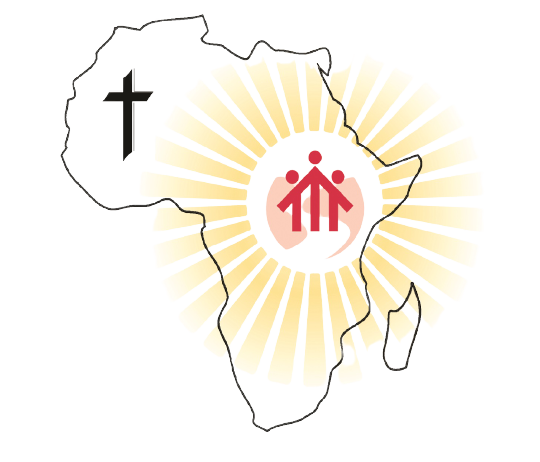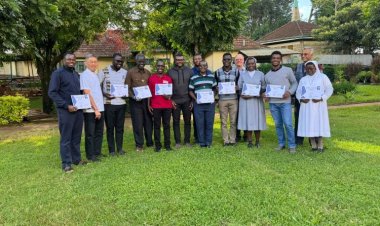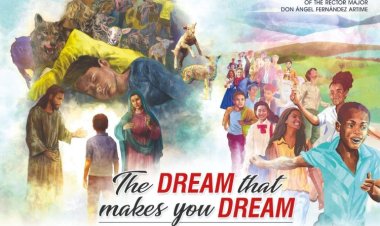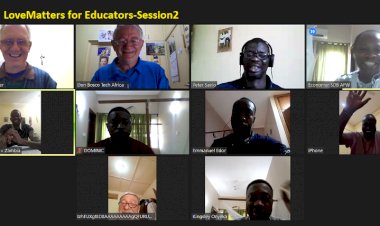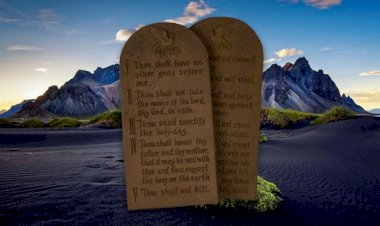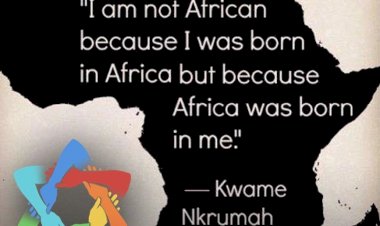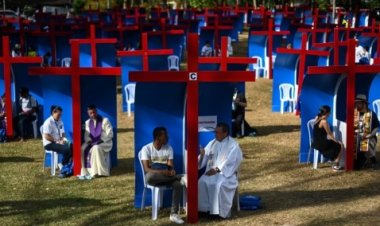Palm Sunday as retold by the donkey
Instead of a donkey, it is on our hearts that Jesus is to ride into the world in triumph. Can we try to be his mules?
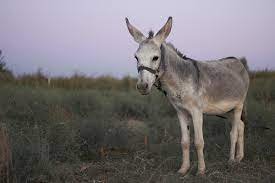
Palm Sunday as retold by the donkey
that Jesus asked for and on which he rode into Jerusalem.
I am a little donkey. I belong to a race of animals most despised by human beings. We are considered ugly, stupid, ignorant, uncivilized, obtuse, stubborn… Our name sounds like an insult, our image is a symbol of foolishness. Yet we are very useful to people. We work without lamenting, we obey without protesting. Who knows why we are not able to get even a little bit of sympathy from people?
Nevertheless, in spite of everything, I am happy to be what I am. The Creator’s opinion about me matters more to me than my master’s, “for you, O Lord, love all things that exist, and detest none of the things that you have made” (Wis 11:24). I don’t know who said these beautiful words, but I like them a lot. Considering the fact that I am alive, I am sure that my life has a meaning. Ever since the time we, stupid donkeys, have existed in the world, God must be a God who loves donkeys. But, there is more. I’m saying it softly because I’m afraid it will raise a laugh: even we donkeys have something of which to be proud of and to boast about.
Do you know that we are the animals God has spoken of in a special way in the Bible? Certainly, we don’t dare to compare ourselves with the sheep who are present a little everywhere in the sacred books, or with the deer, the fawns and the gazelles who parade elegantly in the poetical books; much less can we compare ourselves with the lion, the eagle and the lamb, all fortunate animals that have the honour of being taken as symbols of God himself. But we don’t envy anybody. The role God gave us is unique, original, and surprising.
In the course of our history, which is as long as that of human beings, we have had some illustrious ancestors, chosen by the Lord for important tasks. In the distant patriarchal times, a donkey accompanied Abraham and Isaac to Mount Moriah for the mysterious sacrifice (cf. Gen 22).
During Israel’s journey in the desert, a donkey spoke to Balaam, the prophet of Moab, and made him perceive the Lord’s presence (cf. Num 22).
At the end of the era of the Judges, the search for the lost donkeys led Saul to meet Samuel, who anointed him king of Israel (cf. 1 Sam 9).
Strange but true: often in the past the Lord made use of us, stupid donkeys, as his silent witnesses and humble messengers. He will do the same in the future as well. He has already announced this beforehand through his prophets:
“Say to the daughter of Jerusalem: Lo, your king comes to you; triumphant and victorious is he, humble and riding on a donkey” (Zech 9:9).
The Messiah, the Awaited One, the King of Israel, will come to visit his people, carried on a donkey, borne by one of us! It’s something unbelievable! But our God is a God who does the most ingenious things. We consider ourselves his helpers in surprising the world. At present, while men await the Messiah, we too await the fulfilment of the prophecy about us donkeys. We guard this promise with hope and confidence, and we transmit it from generation to generation as a secret family treasure.
My grandfather often spoke to me about it. In fact, he told me that the fulfilment of the prophecy was imminent because he saw the Messiah with his own eyes. Yes, he saw him. He never mentioned it to anyone except to us little donkeys, because everyone would have laughed in his face, saying:
“How asinine!” But we believed him, and we believe that soon one of us will be the bearer of the Messiah.
My grandfather lived in Bethlehem. He narrated to us that one bitterly cold night in winter, a young couple arrived at the stable where he lived in the company of an ox. The woman was pregnant, and shortly after her arrival gave birth to a child. My grandfather was poor. He had nothing but the manger to offer the new-born child. Together with the ox he sought to warm the stable with his breath for the child as much as he could. The news of that child’s birth must have spread very rapidly because that same night several shepherds came to see him. And there were some angels who sang songs that had never been heard before.
The child was beautiful, his parents were happy, and my grandfather was simply astounded. He didn’t know why, but he was convinced that that child was the Messiah. His conviction became stronger when one day, many years later, he happened to pass by the synagogue and heard a word of Sacred Scripture:
“The ox knows its owner, and the donkey its master’s crib; but Israel does not know, my people do not understand” (Is 1, 3). I too believe that the Messiah has already come, because I believe my grandfather.
Today my grandfather is no longer alive, and I have been sold here, close to Jerusalem. I am still young and have not yet learned to work as I should. My master doesn’t know what to do with me. He ties me in front of his door saying that I am good for nothing. I want so much to make myself useful, but till now no one has condescended or dared to climb up on me and allow me to carry him.
I’ve been pretty restless these days. The feast of the Passover is approaching. The street leading to Jerusalem is crowded and quite chaotic. As usual, I’m tied in front of the door, forgotten and ignored by everyone. I look with a bit of jealousy at the horses carrying well-dressed people. My donkey companions too have an air of pride and satisfaction these days.
Oh, how I would love to form part of a caravan and go to the holy city! Is it possible that in the midst of the crowd no one is aware of me? Is it possible that no one needs me? I wish to be untied, I want to live, I want to work, I want to be useful.
While I try to hold back my tears, I notice two men near me whom I have never seen in this part of town. After examining me from head to tail to be sure they aren’t making a mistake, they begin to untie me. At that moment my master comes out of the house and asks the two strangers: “Why are you untying this little donkey?” They reply: “Because the Lord needs it.” My master lets them carry on. After all, I mean little to him.
I am filled with doubt and confusion. The Lord needs me? But who is this “Lord”? Who would need me, a stupid donkey, so young and inexperienced? How does he know me? How does he know that I am here? How is it that he wants just me? I don’t realize how far I have walked with these two men, so overwhelmed and bewildered am I. At a certain point, I raise my head and I find myself looking into a handsome face with a kind and gentle look. Would this be the “Lord”, the man who needs me? I would have liked to look longer at him to discover in his face the answer to so many of my questions and to impress on my mind that kind and reassuring gaze, but people push me from all sides creating much confusion. He climbs on me slowly and suddenly the men signal for me to walk. What excitement! For the first time in my life I am carrying someone. Does the Lord know that? Does the Lord sitting on me know how happy I am?
Where are we going? To Jerusalem! I see the city towers appear, the majestic walls, and I see so many people everywhere. But, how strange! Instead of walking towards the city, the people come towards us. They are around us. As we struggle to move forward slowly, the people cast their cloaks on the ground forming a merry coloured carpet. The children wave branches. The women kneel. Everyone cries out with a loud voice: “Blessed is the one who comes in the name of the Lord. Hosanna to the king of Israel!”
I never have imagined such a scene. All these people have come to welcome the man seated on me and they call him king of Israel. King of Israel? Yes, that is exactly how they acclaim him. In that case, he must be the Messiah! I am really a donkey for not having understood this before. Zechariah’s prophecy flashes through my mind: “Look, your king is coming to you, humble, and mounted on a donkey.”
But if he is the Messiah, then I… I am that donkey! I feel totally confused.
What happened then to my Lord, the Messiah?
I don’t need to tell you. You know it already from the books written by his disciples. As for me, I don’t know what to say. Words are poor and inadequate when one comes face to face with the mystery.
Seeing my Lord swallowed up by the crowd at the gate of the Temple, I understood that I would never see him again. He wouldn’t need me for the return journey. That famous ancestor of mine, Abraham’s donkey, had the joy of carrying Isaac back home; I instead will not carry my Lord any more. God spared Abraham’s son but did not spare his own Son.
A few minutes ago I carried the Lord on my back; from now on, I shall carry him within me, always.
He needed me to go to Jerusalem; now he still needs me to bear witness in Jerusalem and to the ends of the earth (cf. Acts1:8). It is for this that I exist. He knew me and loved me before I was born. From eternity he thought of me and assigned me a place in history. He announced my mission in advance through his prophets. He had me untied and led to him so that together we might bring a promise to fulfilment. He made me the bearer of his Son, his collaborator in saving the world.
This is my story, but it is also the story of the Messiah-King who entered his city seated on a donkey, the story of a God who is so great as to have need of a stupid animal. Anonymous
Instead of a donkey, it is on our hearts he is to ride into the world in triumph. Can we try to be his mules? Don’t want to?! Our modern western notion of donkeys is not a flattering one. We think of the donkey as a stupid animal. But in biblical times people held donkeys in high regard. The donkey was an animal of peace, as opposed to the horse which was an animal of war, carrying soldiers into battle. At the time of Christ the jews were expecting a messiah who would rally people to his fight against Roman oppression. The action of Jesus riding into Jerusalem on this animal of peace shatters the idea of such a messiah. It stated that the Messiah is not gonna be a warrior king, but a suffering servant.
